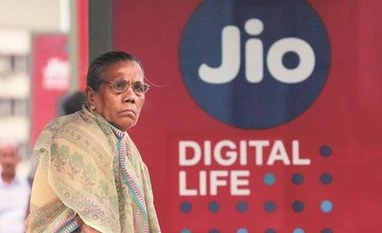Investors seem to have given up on the telecom sector after waiting for nearly a decade to make some money in stocks here.
Kotak Institutional Equity (KIE), a leading brokerage, has decided to drop coverage on Bharti Airtel, the largest mobile telephony operator, citing a dismal financial outlook. The move raises a question mark over long-term financial viability of the sector and investor ability to generate decent return.
The KIE decision is in the wake of Reliance Jio launching a new round of aggressive price cuts to make further inroads into subscribers and the revenue base of older operators. KIE says the successive price cuts by Jio havr made it nearly impossible for the industry to raise revenue and recover the capital expenditure involved in rolling out a national network.
"Jio's aggressive competition could continue for a very long time, until it reaches some undefined market share, revenue or profit targets. We are not sure if Indian market revenues will be sufficient by then for the industry to earn any decent return on investment," write analysts led by Sanjeev Prasad in their latest India Strategy report.
The market frustration with the sector cane be understood. The older operators have seen steady decline in their revenues after the commercial launch of services by Jio in July 2016. For example, Idea Cellular's quarterly revenue rate is down 31.4 per cent, from a peak of Rs 9.5 trillion during the March 2016 quarter. In the same period, Bharti Airtel's consolidated quarterly revenue rate is down 20.6 per cent, while revenue at its Indian mobile division is down 27 per cent.
The result has been a slump in sectoral profitability. Bharti Airtel's profit before interest and taxes (PBIT) at its India mobile division declined to a record low of Rs 1,671 million during October-December 2017, fromt Rs 32,667 mn during January-March 2016. This will translate into a loss at the net level when adjusted for depreciation.
Also Read
It's worse at Idea Cellular, a pure-play mobile operator unlike diversified Airtel. Idea reported a net loss of Rs 12,855 mn during the third quarter of FY18, against net profit of Rs 8,548 mn during the last quarter of FY16.
"Incumbents are impacted by continued delay in revenue recovery, sub-par return on capital employed and continued elevated capex spends. Bharti and Idea are bound to see underperformance from current levels, as the wait for recovery has gotten longer again," say Naval Seth and Ashish Agrawal of Emkay Global Financial Services.
In a way, Airtel and Idea have given away all the gains (in their finances) since they made their debut on the bourses over a decade ago. For example, Airtel had net profit of Rs 252 mn in its maiden quarterly result in March 2003. Idea reported net profit of Rs 1,168 mn in its maiden quarterly result, in March 2006.
Analysts say the biggest challenge for the industry is to generate enough cash profit to pay for the recurring capital expenditure that operations demand. Idea's incremental annual capex has exceeded annual cash profits in the past two years; Airtel is likely to see the first annual shortfall in cash profit over three years in FY18. This could lead to leveraged balance sheets and downward pressure on stock prices.
Jio has no such financial compulsion; it is part of a much bigger and diversified group. At the consolidated level, Reliance Industries reported cash profit of around Rs 420 trillion in FY17, more than twice Airtel's and Idea's combined capex for the year.
Many analysts are, however, betting on Airtel to survive the onslaught, given its industry leadership and diversified business portfolio, including its Africa mobile business. Revenues from the India mobile business accounted for only 51 per cent of consolidated revenue during the first nine months of FY18.
"In the current scenario, Bharti is relatively better placed to fight out competition but it would be a painful fight, with a leveraged balance sheet and continuous fall in India Ebitda (operating profit)," says Naval of Emkay Global.
Others expect the emergence of oligopolistic competition, allowing survivors to raise rates and turn profitable. "The numbers of operators is falling fast and we will soon have a three-player oligopoly, if not a duopoly. This will allow survivors to raise tariffs (rates) beyond a threshold and turn profitable. What we are seeing now is a battle to survive that will go on for another two-three years before a new market share equilibrium emerges," says G Chokkalingam, managing director, Equinomics Research & Advisory.
Many investors seem to believe in the theory -- the Airtel stock price is still up 30 per cent in the past 12 months, despite FY18 reporting one of the worst quarterly results in many years.
)